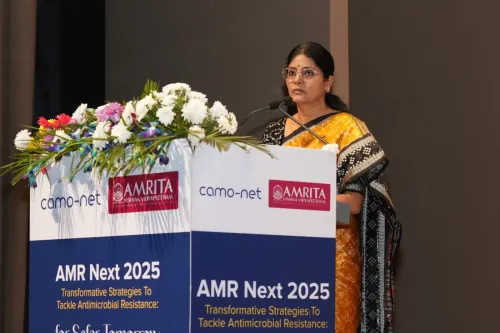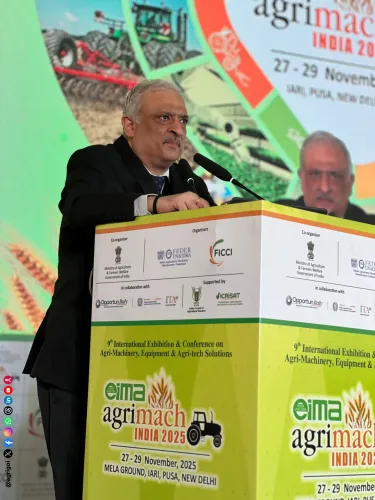How Does Oral Health Impact Cancer Care and Survival Rates?

Synopsis
Key Takeaways
- Oral health significantly influences cancer outcomes.
- Pathogenic bacteria can elevate cancer risks.
- Regular dental visits correlate with lower cancer mortality rates.
- Public health initiatives are essential for improving oral care.
- Education and resources can foster better oral hygiene practices.
New Delhi, July 14 (NationPress) Oral health is a crucial factor in cancer management and improving survival rates, as highlighted by researchers at the All India Institute of Medical Sciences (AIIMS). Pathogenic oral bacteria such as Porphyromonas gingivalis and Prevotella intermedia have been linked to an increased risk of cancer and can negatively impact both cancer-specific and disease-free survival rates.
In a commentary published in The Lancet Regional Health - Southeast Asia, oncologists Dr. Abhishek Shankar and Dr. Vaibhav Sahni from AIIMS stressed the necessity of enhancing public health initiatives, asserting that oral health can substantially influence cancer outcomes and survivorship.
“It is evident that maintaining oral health is vital for improving health-related outcomes, particularly concerning cancer survivorship. This evidence highlights the importance of incorporating oral health practices not only in primary care but across all healthcare environments,” the researchers noted in their paper.
The oncologists referenced multiple global studies that established a connection between oral health and cancer, especially in head and neck cancers (HNC). These studies indicated that regular dental check-ups over the last decade were linked to a decrease in cancer mortality.
They advocated for programs such as tooth brushing initiatives to improve oral care and the implementation of mouth rinse-based point-of-care (PoC) testing for the early detection of periodontal disease.
“Our goal was to highlight the significance of oral health in cancer treatment, particularly for the Southeast Asia region, to foster awareness and influence policy decisions,” Dr. Shankar, Assistant Professor of Radiation Oncology at AIIMS, Delhi, told IANS.
“We believe public health initiatives should focus on oral health, like school-based tooth brushing programs, which benefit not just the population but also the economy,” he further stated.
Moreover, the paper recommends educating and incentivizing teachers and families regarding oral health, alongside providing complimentary toothbrush and toothpaste samples to encourage positive behavioral changes.
Additionally, public health measures such as nutrition education and sugar warning labels could help consumers make better choices.
“Regulating the marketing of sugary foods featuring appealing characters should be prioritized at the policy level,” Dr. Sahni, a Scientist in Radiation Oncology at AIIMS Delhi, remarked to IANS.
He emphasized the systemic and public health significance of oral health in cancer outcomes, while also calling for relevant data collection. The expert urged for comprehensive studies specifically in Southeast Asia, rather than simply applying Western findings to this region’s context.









